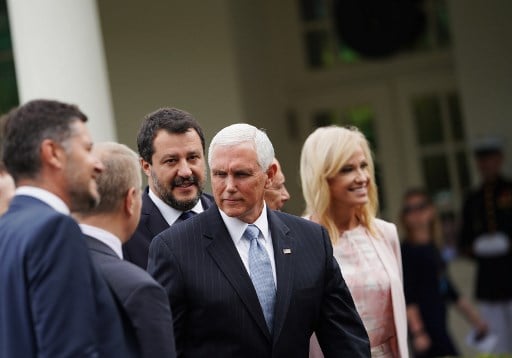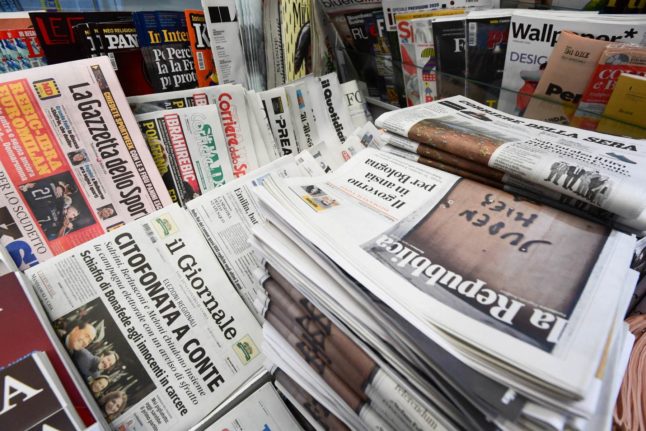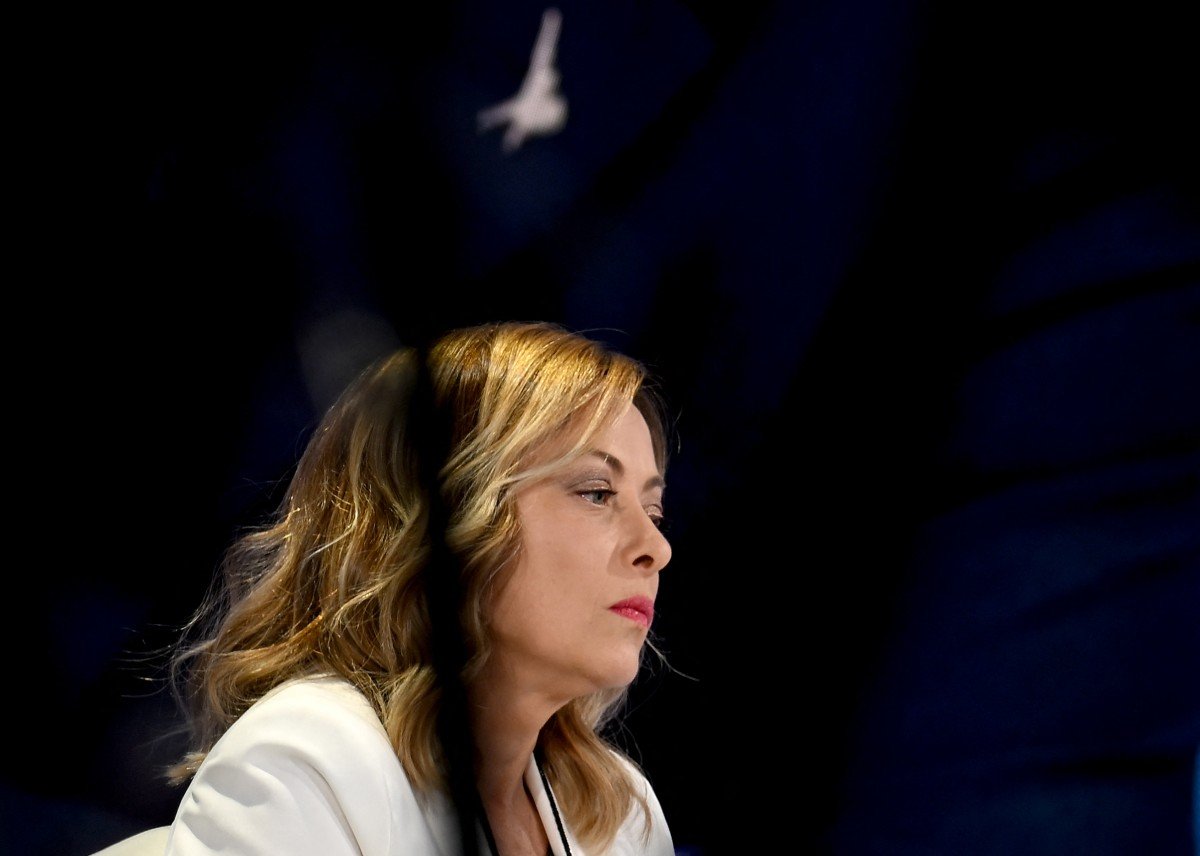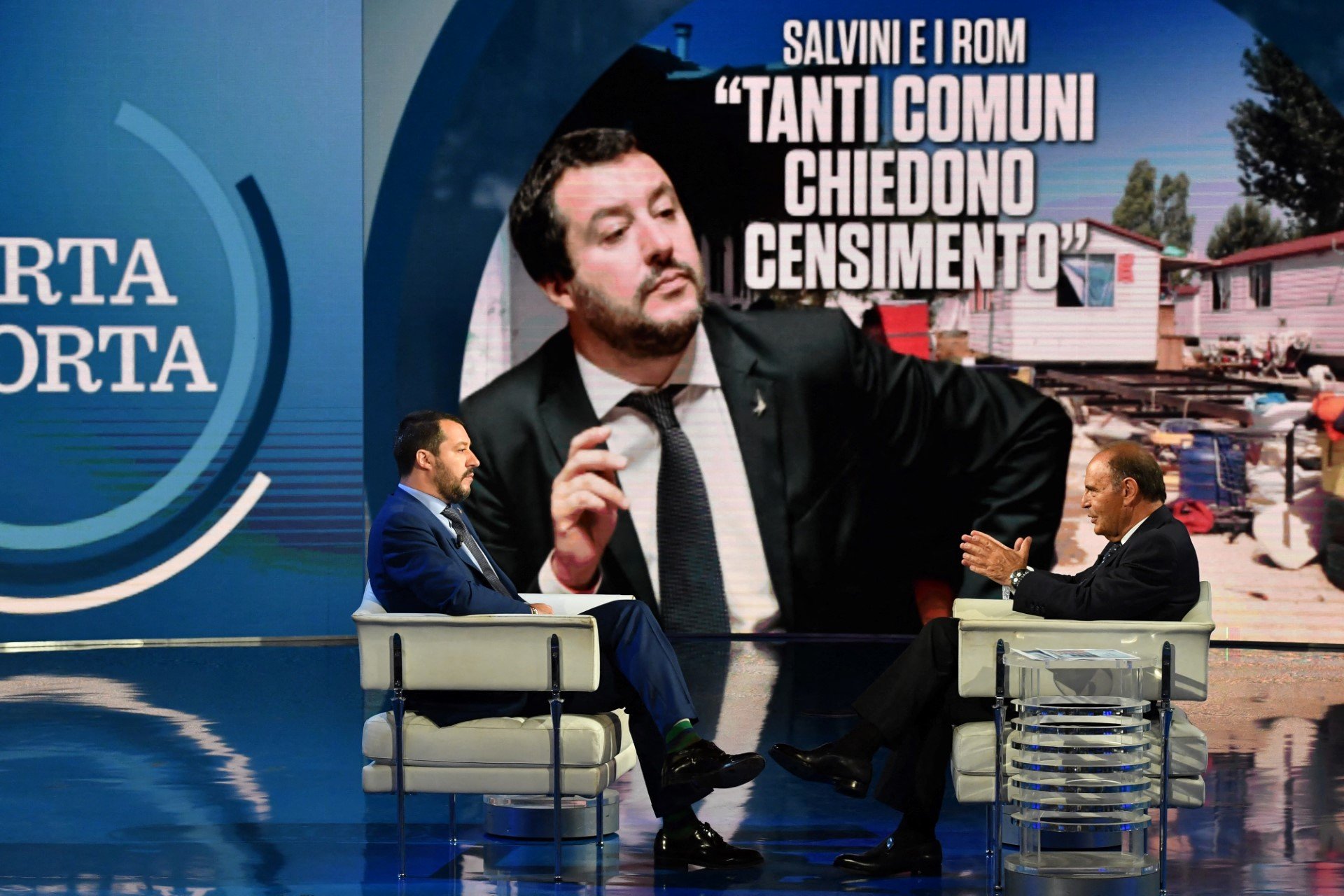Salvini didn't get to meet Trump, who has long been one of the Italian politician's heros. Instead, he met with Secretary of State Mike Pompeo and then with Vice President Mike Pence.
Pence tweeted that the two had a “great meeting,” discussing “the U.S. – Italy relationship and our shared priorities.”
“The transatlantic alliance is stronger than ever!” the vice president wrote.
Great meeting with Deputy Prime Minister @matteosalvinimi of Italy today to discuss the U.S. – Italy relationship and our shared priorities. The transatlantic alliance is stronger than ever! pic.twitter.com/zYCmI18hIw
— Vice President Mike Pence (@VP) June 17, 2019
Salvini and Pompeo “reiterated the value of the United States' longstanding relationship with Italy, including as NATO Allies and members of the G7” group of advanced economies, the US State Department said.
During a news conference at the Italian embassy, Salvini, whose party is often at odds with its populist coalition partners, the Five Star Movement, spent little time discussing his own role in cracking down on boats trying to save migrants crossing the Mediterranean from North Africa.
READ ALSO:
He focused instead on a “shared vision” with the Trump administration of “Iran, Venezuela, Libya, the situation in the Middle East, Israel's right to exist” and “concerns about Chinese arrogance towards Europe and the African continent.”
Like Trump, he called for dialogue with Russian President Vladimir Putin in order to “bring Moscow closer to the system of Western values rather than be driven into Beijing's arms.”
He defended massive tax cuts despite concerns in Brussels about Rome's soaring debt, and went as far as calling for a “Trumpian budget” in his country.
READ ALSO:
As for the European Union, which Trump has often targeted, Salvini criticized “weaknesses” before laying into the EU's chief diplomat and fellow Italian Federica Mogherini a day before she makes her own visit to Washington.
“I believe I can say that Italy is the country most reliable, coherent and credible as interlocutor for the United States in Europe,” he said after meeting Pence, presenting himself as “an alternative to the Franco-German superpower.”
“I believe that our countries have never been closer than they are now,” Salvini tweeted.
Felice e onorato di avere incontrato oggi alla Casa Bianca il Vice Presidente degli Stati Uniti @VP, @mike_pence.
Credo che i nostri due Paesi non siano mai stati così vicini come ora. L’Amministrazione Trump è l’esempio che si può tornare a sognare in grande. ???? #SalviniUSA pic.twitter.com/D5ZKF2IGFc— Matteo Salvini (@matteosalvinimi) June 17, 2019
Trump and his administration have not made any secret of their affinity for the populist government in Rome.
“Salvini's background and approach to foreign policy… draws a lot of inspiration from President Trump's America First policy and this creates a lot of fractures” with the Five Star Movement, said Italian researcher Giovanna De Maio at the Brookings Institution.
Noting the links between the League leader and “US far-right circles” including Steve Bannon, a former close Trump aide, she pointed out that “having an endorsement from the US is particularly important for Salvini's leverage in the European Union context.”
Salvini said he had persuaded Pompeo to visit Italy's central Abruzzo region, where his grandparents came from, and played up the ideological links with other countries.
“Between Italy, the United States, Israel, Brazil, Poland and Hungary, there is a closeness in their vision of the world, of rights and values,” he said, insisting that the League was not “isolated.”





 Please whitelist us to continue reading.
Please whitelist us to continue reading.
Member comments